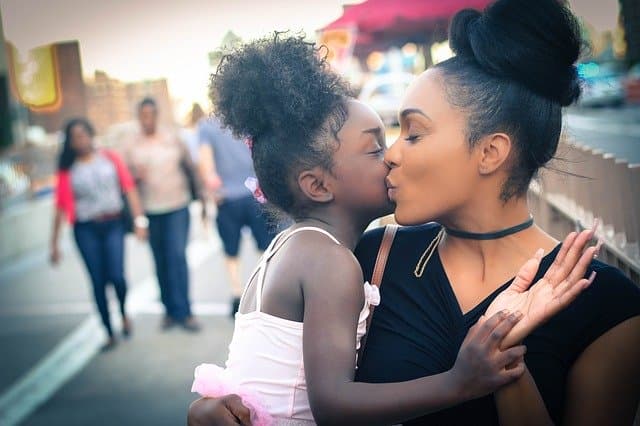Sponsor Undeclared Relative to Canada

Did you leave off your relative from your immigration or refugee application? Well, for a little while you might be able to sponsor them for PR.
A new pilot program that started on September 9, 2019, will offer an opportunity for sponsorship of undeclared family members on the part of those of failed to declare them when they themselves initially applied to come to Canada. The pilot program, recently announced by Minister Hussen, is targeted mainly at refugees and protected persons who have come to Canada and because of the conflict and discrimination in their home countries, they failed to declare all their family members. They now will be able – subject to conditions outlined below – be able to sponsor some of those dependents that they previously failed to declare.
Why You Couldn’t Sponsor an Undeclared Relative
Up until this pilot program, anyone who failed to have a non-accompanying family member declared and examined was hit with a lifetime ban on sponsoring anyone else to Canada. This was put in place to encourage full disclosure of all family members on the part of people who wished to move to Canada. Full disclosure was – and is – deemed necessary to ensure that any family member of an applicant is not a potential risk which would make the applicant ineligible to come to Canada, or inadmissible to enter Canada.
Pilot Program for the Sponsorship of Undeclared Family Members
Sponsorship of undeclared family members will now be available for foreign nationals who wish to come to Canada and are members of the following two classes:
- Family class, or
- Spouse or Common Law Partner in Canada class.
These foreign nationals as well must have been previously not declared by a sponsor who came to Canada and obtained permanent resident status:
- As a convention refugee or person in similar circumstances, or
- As a protected person, or
- Was sponsored to come to Canada:
- As a spouse, or
- As a common law or conjugal partner, or
- As a dependent child.
Specifically, these foreign nationals will be exempted from the following paragraphs of the Immigration and Refugee Protection Regulations:
Paragraph 117 (9)(d): A foreign national shall not be considered a member of the family class by virtue of their relationship to a sponsor if the sponsor previously made an application for permanent residence and became a permanent resident and, at the time of that application, the foreign national was a non-accompanying family member of the sponsor and was not examined.
Paragraph 125 (1)(d): a foreign national shall not be considered a member of the spouse or common law partner in Canada class by virtue of their relationship to the sponsor if the sponsor previously made an application for permanent residence and became a permanent resident and, at the time of that application, the foreign national was a non-accompanying family member of the sponsor and was not examined.
In other words, if you are a dependent child or a spouse or partner of a convention refugee or protected person who has PR status and is living in Canada, and you were previously not declared as a family member, you now have a chance to be sponsored to come to Canada.
Eligibility Requirements for Sponsoring an Undeclared Family Member to Canada
Please understand that this process will not be automatic. Even if you fit the above description of a foreign national who was previously not declared, you still need to show eligibility and admissibility to Canada in all the other aspects of Canada’s immigration regulations. As well, your sponsor must qualify as a sponsor under Canada’s immigration rules and regulations.
Specifically, the foreign national must meet all of the following conditions:
- The foreign national has applied as a spouse or common law partner in the Spouse or Common Law Partner in Canada class, or as a spouse, common law partner, or dependent child in the Family Class.
- The foreign national has a sponsor who:
- Applied for and was granted permanent residence status as a convention refugee or person in similar circumstances; or,
- Was granted permanent residence status after having been determined to be a protected person; or,
- Was determined to be a member of the Family class, and was granted permanent residence as a sponsored spouse, common-law partner, conjugal partner, or dependent child; or,
- Was determined to be a member of the Spouse or Common Law Partner in Canada class, and was granted permanent residence as a spouse or common-law partner.
- The foreign national, if declared and examined at the time their sponsor immigrated to Canada, would not have made their sponsor ineligible in the class that the sponsor applied for.
As you can see, this last requirement means you must show you are not deemed ineligible or inadmissible to enter Canada, as any sponsored person from any country has to do to qualify to come to Canada. As Minister Hussen states, you can’t have made the person who would have sponsored you ineligible to come to Canada under the program they applied through, when they came to Canada.
As well, Minister Hussen states that as the foreign nationals under this new pilot program will be spouses, partners, or dependent children, they will not impose an undue burden on Canada’s social programs (mainly healthcare and social assistance programs) compared to the parents or grandparents of the sponsor who are still living abroad, for example.
This also means that parents or grandparents of any sponsor in Canada who is interested in sponsoring undeclared family members, are NOT eligible for this pilot program unfortunately.
Additional Features of the Pilot Program
As this is a pilot program, further details will be coming out over the following weeks and months, but the following points were also made in the announcement of this program:
- Standard Fees in the Family class and the Spouse or Common-law Partner in Canada class must be paid. They will not be waived.
- Dependent children – at the time they apply to be sponsored – must meet the definition of a dependent child as outlined in section 2 of the Immigration and Refugee Protection Regulations. This includes paragraph 117 (2) which states:
(2) A foreign national who is the adopted child of a sponsor and whose adoption took place when the child was under the age of 18 shall not be considered a member of the family class by virtue of the adoption unless
- (a) the adoption was in the best interests of the child within the meaning of the Hague Convention on Adoption; and
- (b) the adoption was not entered into primarily for the purpose of acquiring any status or privilege under the Act.
This means that any adopted dependent child must not have been adopted in order to qualify to come to Canada as a dependent child.
- Any sponsor who resides in Quebec must ensure their sponsorship is done under the rules of the provincial government of Quebec.
Which Applications Does the New Pilot Program Apply to?
The new policy starts on September 9, 2019 and ends on September 9, 2021 and applies to the following applications:
- Applications that were pending on May 31, 2019
- Applications received between May 31, 2019 and September 9, 2019
- Applications that were pending reconsideration between May 31, 2019 and September 9, 2019.
As with all pilot programs more details will be released so be sure to check back with us in order to get all the latest news on this development!
Click here to learn more about Immigroup’s paid Sponsorship Service.
